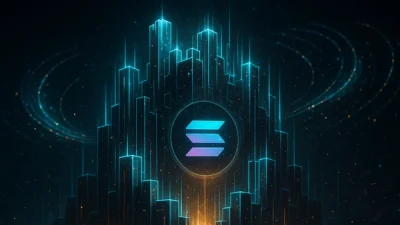How to Stake Solana (SOL) and Earn maximum Annual Rewards

Why Stake Solana?
Staking SOL serves two primary functions:
- Reward Generation: Earn 5-8% annual yields (substantially higher than traditional savings accounts).
- Network Security: Participate in Solana’s proof-of-stake consensus mechanism.
Key Advantage: Unlike exchange staking (e.g., Coinbase’s 2.5% APY), direct delegation yields significantly higher returns.
Prerequisites for Staking
- SOL Tokens (No minimum required)
- Non-Custodial Wallet:
Step 1: Validator Selection Best Practices
Selecting validators requires due diligence:
| criteria | optimalThreshold | verificationTool |
|---|---|---|
| Commission Rate | 5-10% | Solana Beach |
| Uptime | >99% | Validators.app |
| Skip Rate | <5% | Staking Rewards Calculator |
Top-Performing Validators (Q2 2025):
- Everstake (99.9% uptime, 7% commission)
- Jito (MEV-optimized rewards, 8% commission)
- Figment (Enterprise-grade infrastructure, 5% commission)
Risk Note: 0% commission validators often deliver lower net APY due to oversubscription.
Step 2: Delegation Process (Phantom Wallet)
- Open Phantom → Navigate to "Earn" section
- Search validator by name → Verify commission rate
- Enter SOL amount → Retain 0.01 SOL for transaction fees
- Confirm delegation (Fee: 0.000005 SOL)
- Rewards commence after first epoch completion (≈48 hours)
Reward Mechanics & Optimization
- Distribution: Rewards accrue per epoch (2-3 days) and auto-compound.
- APY Variables:
- Network inflation rate (Currently 1.48%)
- Validator performance
- Total staked SOL
Maximization Strategies:
- Liquid Staking: Convert SOL to mSOL (Marinade Finance) for DeFi yield stacking (Total APY: 10-12%).
- Multi-Validator Diversification: Mitigate downtime risk by delegating to 3+ validators.
Risk Assessment
| risk | probability | mitigationStrategy |
|---|---|---|
| Validator Downtime | Low | Select validators with >99% uptime |
| Unstaking Delay (3-4 days) | High | Maintain liquidity reserve |
| Regulatory Uncertainty | Medium | Consult tax professionals |
Tax & Compliance Considerations
- United States: Staking rewards classified as ordinary income (Reportable on IRS Form 1040).
- European Union: Subject to capital gains tax upon disposal.
- Tracking Tools: Koinly, TokenTax (Automate reward documentation).
Verified Claims
Direct delegation of SOL yields 5-8% APY, higher than centralized exchange staking.
TrueBased on current validator reward rates and commission structures.
Frequently Asked Questions
What is Solana’s minimum staking requirement?
Solana imposes no minimum staking threshold.
How frequently are rewards distributed?
Rewards compound every epoch (Approximately 48 hours).
Can delegated SOL be slashed?
Unlike Ethereum, Solana validators cannot slash delegated tokens.
Why avoid exchange-based staking?
Centralized exchanges typically offer 60-70% lower yields than direct delegation.
What is the unstaking timeline?
SOL requires 3-4 days to become liquid after unstaking.
Are staking rewards taxable?
Yes, in most jurisdictions. Consult local regulations.
How to verify validator performance?
Monitor real-time metrics via Solana Beach or Staking Rewards.
Can staked SOL participate in governance?
Delegated SOL automatically votes per validator preferences.
